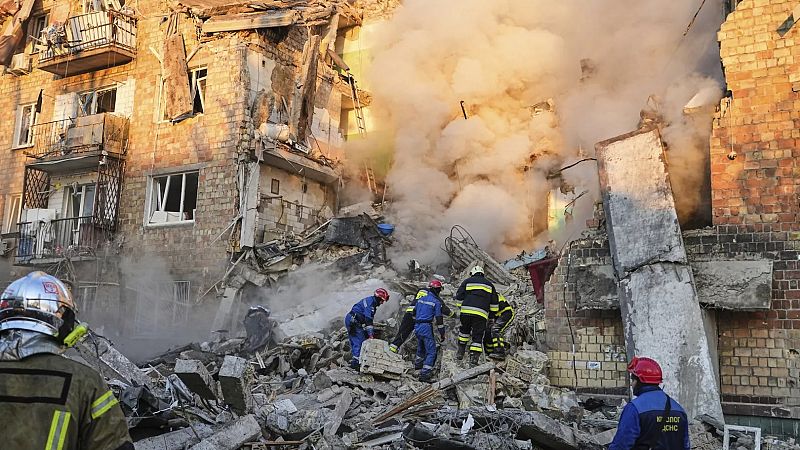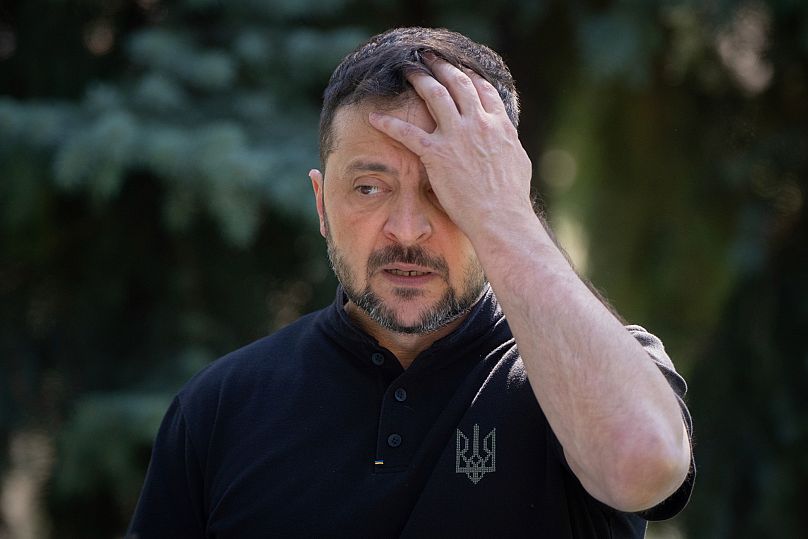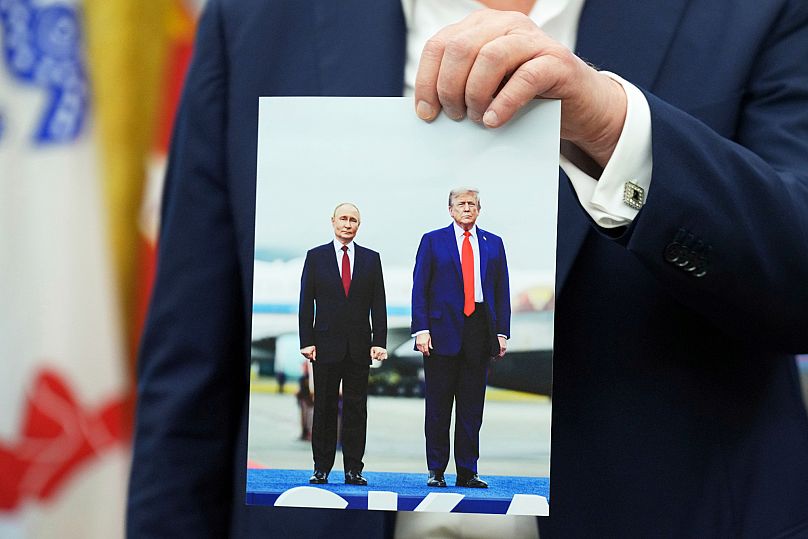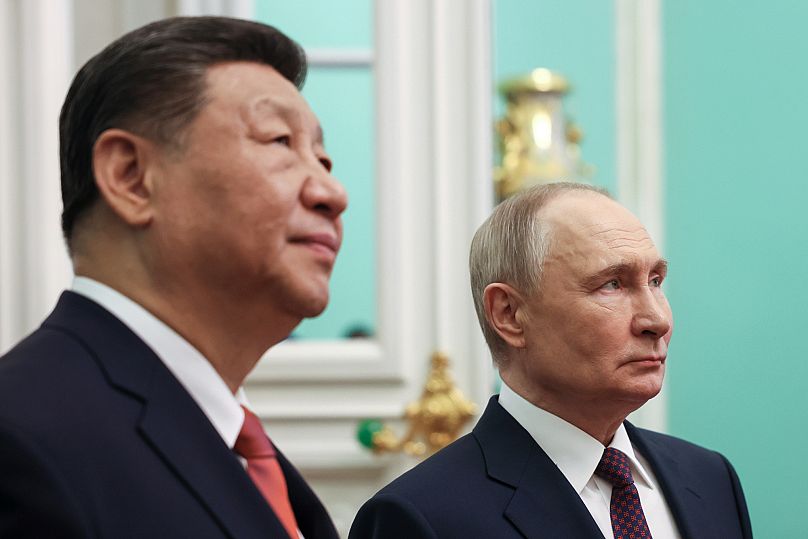Zelenskyy seeks talks with Trump and European leaders to discuss slow progress of peace efforts

Ukrainian President Volodymyr Zelenskyy said on Friday that officials from Kyiv want to meet with his US counterpart Donald Trump and European leaders next week to discuss efforts to end Russia's more than three-year war.
The proposed meetings appear to be aimed at adding momentum to the push for peace, as Zelenskyy expressed frustration with what he called Russia's lack of constructive engagement in the process.
Trump has expressed annoyance at Russian leader Vladimir Putin stalling on a US proposal for direct peace talks with Zelenskyy and said a week ago he expected to decide on next steps in two weeks if direct talks aren’t scheduled.
The US president complained last month that Putin "talks nice and then bombs everybody."
But he has also chided Ukraine's attacks on Russia, and a major missile and drone attack on Ukraine overnight into Thursday that killed at least 23 people drew no public condemnation from the White House.
Andriy Yermak, the head of Ukraine's presidential office, is expected to meet with Trump’s special envoy Steve Witkoff in New York on Friday to discuss preparations for upcoming meetings, Zelenskyy said during his press briefing.
Zelenskyy told reporters in Kyiv that he expected "several meetings at different venues" with European leaders next week.
Ukrainian negotiators have been attempting to advance the peace process through talks in Qatar, Saudi Arabia, Turkey, the United Arab Emirates, Switzerland and the US, he said.
Ukraine has accepted a US proposal for a ceasefire and a meeting between Putin and Zelenskyy, but Moscow has raised objections.
Ukraine wants leaders involved
Zelenskyy accused Russia of dragging out negotiations, including by postponing a Russia-Ukraine summit, arguing that the groundwork for a possible peace settlement must be established first by lower-level officials before leaders can meet.
That reasoning, Zelenskyy said, is "artificial … because they want to show the United States that they are constructive, but they are not constructive."
"In my opinion, leaders must urgently be involved to reach agreements," Zelenskyy said.
Kremlin spokesperson Dmitry Peskov reiterated Moscow's long-held position on Friday that Putin "doesn’t rule out" meeting Zelenskyy, but only after progress is made "at the expert level."
A summit "must be well prepared so that it can finalize the work that must first be carried out at the expert level," Peskov told reporters during his daily conference call.
"At this point we can’t say that the expert work is in full swing, so to speak. No, unfortunately, not. We maintain our interest and our readiness for these negotiations."
Zelenskyy says more weapons are crucial for security
Zelenskyy urged swift secondary sanctions on countries that trade with Russia and thereby support its war economy.
The possible post-war security guarantees being assessed by Western countries to deter another Russian invasion in the future must include a secure supply of weapons for Ukraine, either through domestic production or Western provision, and US weapons paid for by Europe.
Zelenskyy's comments came after the death toll from a major Russian missile and drone strike on Kyiv rose to 23, including four children, officials said on Friday.
Ukraine needs more sophisticated Western air defence systems to counter such attacks.
More diplomatic moves lie ahead
Putin is due to attend a meeting in China from Sunday that will also include Iran and North Korea, countries which have also aided Russia's war effort.
From 9 September, world leaders are expected to attend the UN General Assembly, where Russia's ongoing full-scale invasion will likely be discussed.
The Atlantic Council, a Washington think tank, noted that recent US presidents have shied away from taking a tougher line with Putin for fear of a potential nuclear conflict.
"Putin knows that Washington and its allies have more than enough capacity to reverse his gains in Ukraine, but it is nearly certain that he doubts the United States has the will to do so," the Atlantic Council said in an assessment this week.
It added that "the second Trump administration has repeatedly signalled that the United States has no vital interests at stake in this war."
Today




